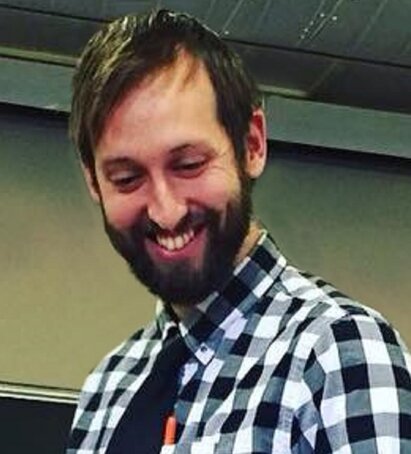I’m a full-time lecturer in the math department at the University of Pittsburgh and an adjunct professor of physics at Duquesne University. I’ve also worked part-time at NYU and Cooper Union in Manhattan. All the adjunct labor I’ve done has been for about 4k per class, and not a single part-time job offered benefits.
Despite the precarious nature of my employment, ten years spent training in theoretical physics still feels worth it because the role we play as educators is fundamental to protecting our democratic institutions. With every presidential press conference, America takes another step closer to the double-speak dystopia of a George Orwell novel. It’s paramount that academics use their training to teach the lessons we learned during the scientific revolution: careful, thoughtful data collection, followed by a logical, reasoned discourse about its interpretation. Lessons that today, politicians ask us to forget.
This is no small task. Without the security of a contract that has been negotiated by the faculty, acting as a collective unit to ensure the health and well-being of our institution, I don’t see a bright future for academia. There are too many incentives for precarious instructors to teach in a way that, rather than doing what’s best for students, maximizes their chances of being able to pay rent next month. We must acknowledge that administrators will not voluntarily give us a meaningful voice in university governance, that if we want to better our living conditions, if we want to alter the course of the university away from a revenue-driven multinational corporation and back to the bulwark of a free thinking society, we must do so together.
--Patrick Cooper, Math - University of Pittsburgh; Physics - Duquesne University
Despite the precarious nature of my employment, ten years spent training in theoretical physics still feels worth it because the role we play as educators is fundamental to protecting our democratic institutions. With every presidential press conference, America takes another step closer to the double-speak dystopia of a George Orwell novel. It’s paramount that academics use their training to teach the lessons we learned during the scientific revolution: careful, thoughtful data collection, followed by a logical, reasoned discourse about its interpretation. Lessons that today, politicians ask us to forget.
This is no small task. Without the security of a contract that has been negotiated by the faculty, acting as a collective unit to ensure the health and well-being of our institution, I don’t see a bright future for academia. There are too many incentives for precarious instructors to teach in a way that, rather than doing what’s best for students, maximizes their chances of being able to pay rent next month. We must acknowledge that administrators will not voluntarily give us a meaningful voice in university governance, that if we want to better our living conditions, if we want to alter the course of the university away from a revenue-driven multinational corporation and back to the bulwark of a free thinking society, we must do so together.
--Patrick Cooper, Math - University of Pittsburgh; Physics - Duquesne University


